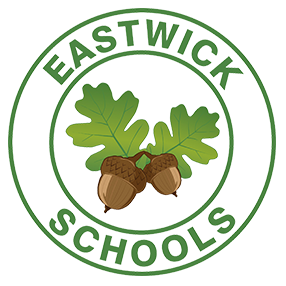Geography
National Curriculum Purpose of Study
A high-quality geography education should inspire in pupils a curiosity and fascination about the world and its people that will remain with them for the rest of their lives. Teaching should equip pupils with knowledge about diverse places, people, resources and natural and human environments, together with a deep understanding of the Earth’s key physical and human processes. As pupils progress, their growing knowledge about the world should help them to deepen their understanding of the interaction between physical and human processes, and of the formation and use of landscapes and environments. Geographical knowledge, understanding and skills provide the frameworks and approaches that explain how the Earth’s features at different scales are shaped, interconnected and change over time.
National Curriculum Aims
The national curriculum for geography aims to ensure that all pupils:
- develop contextual knowledge of the location of globally significant places – both terrestrial and marine – including their defining physical and human characteristics and how these provide a geographical context for understanding the actions of processes
- understand the processes that give rise to key physical and human geographical features of the world, how these are interdependent and how they bring about spatial variation and change over time
- are competent in the geographical skills needed to:
- collect, analyse and communicate with a range of data gathered through experiences of fieldwork that deepen their understanding of geographical processes
- interpret a range of sources of geographical information, including maps, diagrams, globes, aerial photographs and Geographical Information Systems (GIS)
- communicate geographical information in a variety of ways, including through maps, numerical and quantitative skills and writing at length.
Geography at Eastwick
The geography curriculum at Eastwick meets the requirements of the National Curriculum and our school's curriculum ethos. It prepares children to be ‘Ready for Everything’ in their futures in terms of:
- Success in the next stage of their education and beyond: by ensuring children have a diverse knowledge of the world including their locality; by providing a strong focus on geographical knowledge and fieldwork skills so that children think like a geographer; by ensuring children understand how the earth’s features, at different scales, are shaped, interconnected and changed over time.
- their ability to navigate life’s personal Challenge: by developing curious, explorative and critical thinking, with the ability to ask perceptive questions and explain and analyse evidence.
- understanding their place in communities at global, national and local levels and seize the Opportunity of the future: building an awareness of how geography shapes our lives, and encourages pupils to become resourceful, active citizens who will have the skills to contribute to and improve the world around them.
Curriculum Content
- In Reception, pupils are taught elements of geography that prepare them for the Year 1 curriculum.
- Our curriculum in Years 1-6 uses the Kapow Geography scheme of work.
- Knowledge is built progressively throughout Key Stage 1 and 2. Pupils revisit the key knowledge themes (see below) on a cyclical basis. Each time a key knowledge theme is revisited, it is covered with greater complexity, therefore increasing children’s breadth and depth of knowledge. Prior knowledge is recalled and utilised so that pupils build on previous foundations.
- Children make use of the school’s extensive grounds and the local area to develop their knowledge through fieldwork.
Key Knowledge Themes:
human features
physical features
weather and climate
land formation
capital cities, countries and continents
bodies of water
settlements
sustainability
Units taught (Years 1-6):
|
Year 1 |
What is it like here? |
What is the weather like in the UK? |
What is it like to live in Shanghai? |
|
Year 2 |
Would you prefer to live in a hot or cold place? |
Why is our world wonderful? |
What is it like to live by the coast? |
|
Year 3 |
Why do people live near volcanoes? |
Who lives in Antarctica? |
Are all settlements the same? |
|
Year 4 |
Why are rainforests important to us? |
Where does our food come from? |
What are rivers and how are they used? |
|
Year 5 |
What is life like in the Alps? |
Why do oceans matter? |
Would you like to live in the desert? |
|
Year 6 |
Why does population change? |
Where does our energy come from? |
Can I carry out an independent fieldwork enquiry? |

